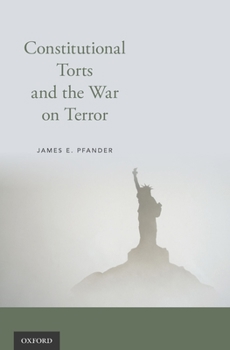Constitutional Torts and the War on Terror
Constitutional Torts and the War on Terror examines the judicial response to human rights claims arising from the Bush Administration's war on terror. Despite widespread agreement that the Administration's program of extraordinary rendition, prolonged detention, and "enhanced" interrogation was torture by another name, not a single federal appellate court has confirmed an award of damages to the program's victims. The silence of the federal courts leaves victims without redress and the constitutional limits on government action undefined. Many of the suits seeking redress have been based on the landmark 1971 Supreme Court decision in Bivens v. Six Unknown Named Agents of the Federal Bureau of Narcotics. This book traces the history of common law accountability, the rise of Bivens claims, and the post-Bivens history of constitutional tort litigation. After evaluating the failure of Bivens litigation arising from the war on terror, the book considers and rejects the arguments that have been put forward to explain and justify judicial silence. The book provides the Supreme Court with the tools needed to rethink its Bivens jurisprudence. Rather than treating the overseas national security context as disabling, modern federal courts should take a page from the nineteenth century, presume the viability of tort litigation, and proceed to the merits. Only by doing so can the federal courts ensure redress for victims and prevent future Administrations from using torture as an instrument of official policy.
Format:Hardcover
Language:English
ISBN:0190495286
ISBN13:9780190495282
Release Date:January 2017
Publisher:Oxford University Press
Length:274 Pages
Weight:1.10 lbs.
Dimensions:1.0" x 6.1" x 9.4"
Related Subjects
LawCustomer Reviews
0 rating





